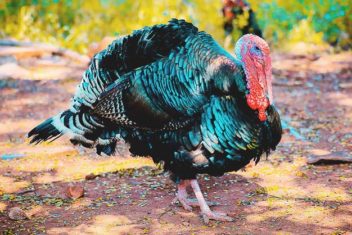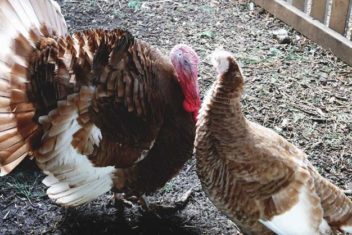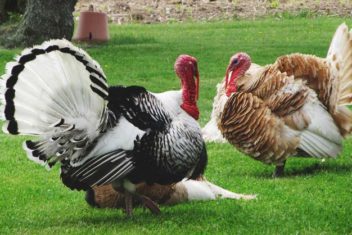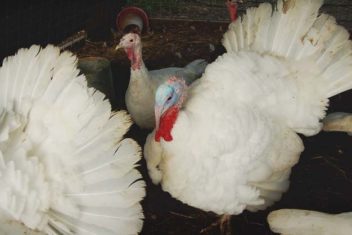If you’re already raising chickens for eggs you may be wondering if there’s any other animal you can raise for a dual purpose.
What about turkeys?
You love their meat at Thanksgiving, but would they work as an egg producer as well?
You’ve come to the right place with your question. In this article, we will discuss if they would make a possible egg source, how you would go about using their eggs, and, if you want to, how to raise turkeys for eggs.
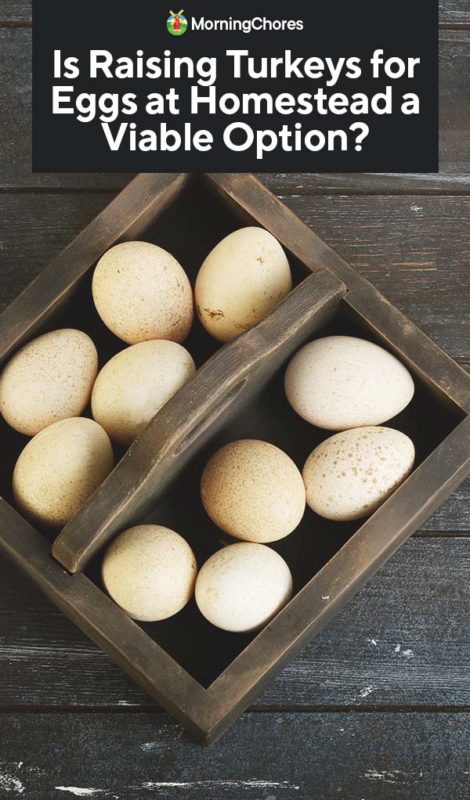
Quick Summary:
Raising turkeys for just eggs is not a feasible option. Compared to chickens, turkeys cost more to keep, they lay fewer eggs (up to 100 per year), and they lay eggs at later age (7 months). Nutritionally, turkey eggs are not better than chicken or duck eggs. So, it is better to raise chickens or ducks instead if you only want eggs.
However, if you raise turkeys for meat, it is a good idea to get the eggs too. You can consume the eggs for yourself, hatch, or sell fertilized eggs.
Are Turkeys Good for Laying Eggs?
Your feathers may have fallen a little when you heard how much food turkeys can consume. They’re not a cheap animal to raise.
Though, some homesteaders still choose to raise turkeys because they like to know what’s in their meat, even if it’s not a better option compared to buying turkeys—financially.
If you are someone working on a tight budget, don’t lose hope yet. There is still a reason to consider raising turkeys for both meat and eggs. You also need to know what to expect when raising turkeys for eggs:
1. They Could Pay for Themselves
If you would like to raise turkeys for eggs, the good news is they could potentially pay for themselves. You could keep a male and female turkey together and sell any excess eggs as fertilized eggs.
People who want to hatch their own turkey eggs will pay you for fertilized eggs. You could also save the fertilized eggs, hatch them yourself, and sell the poults to help cover some of the costs of raising a turkey.
If you have any turkey eggs you don’t want to eat, you could see if a local restaurant or someone with a taste for delicacies, would like to buy your turkey eggs.
Because turkey eggs are considered a delicacy they can be sold for as much as $2- $3 per egg, again, you’d have to find the market, but if you found one, it could help with offsetting the costs of raising the turkeys.
2. Slow to Lay
Even if you found a market for selling turkey eggs, you need to know what to expect realistically.
Turkeys don’t lay as much as chickens do.
Chickens will usually begin laying eggs at around five months, but turkeys are much slower. They require approximately seven months before they’ll start laying eggs. That equates to more months of feeding birds which are only going to eat and not give anything in return.
If you’re raising them to sell the eggs, get a few eggs for yourself, and to have a backyard Thanksgiving turkey, the fact they’re a slow layer may not be such a big deal for you. But, if you’re looking for a quick turnaround, turkeys aren’t going to be your bird of choice.
3. They Don’t Lay Many Eggs
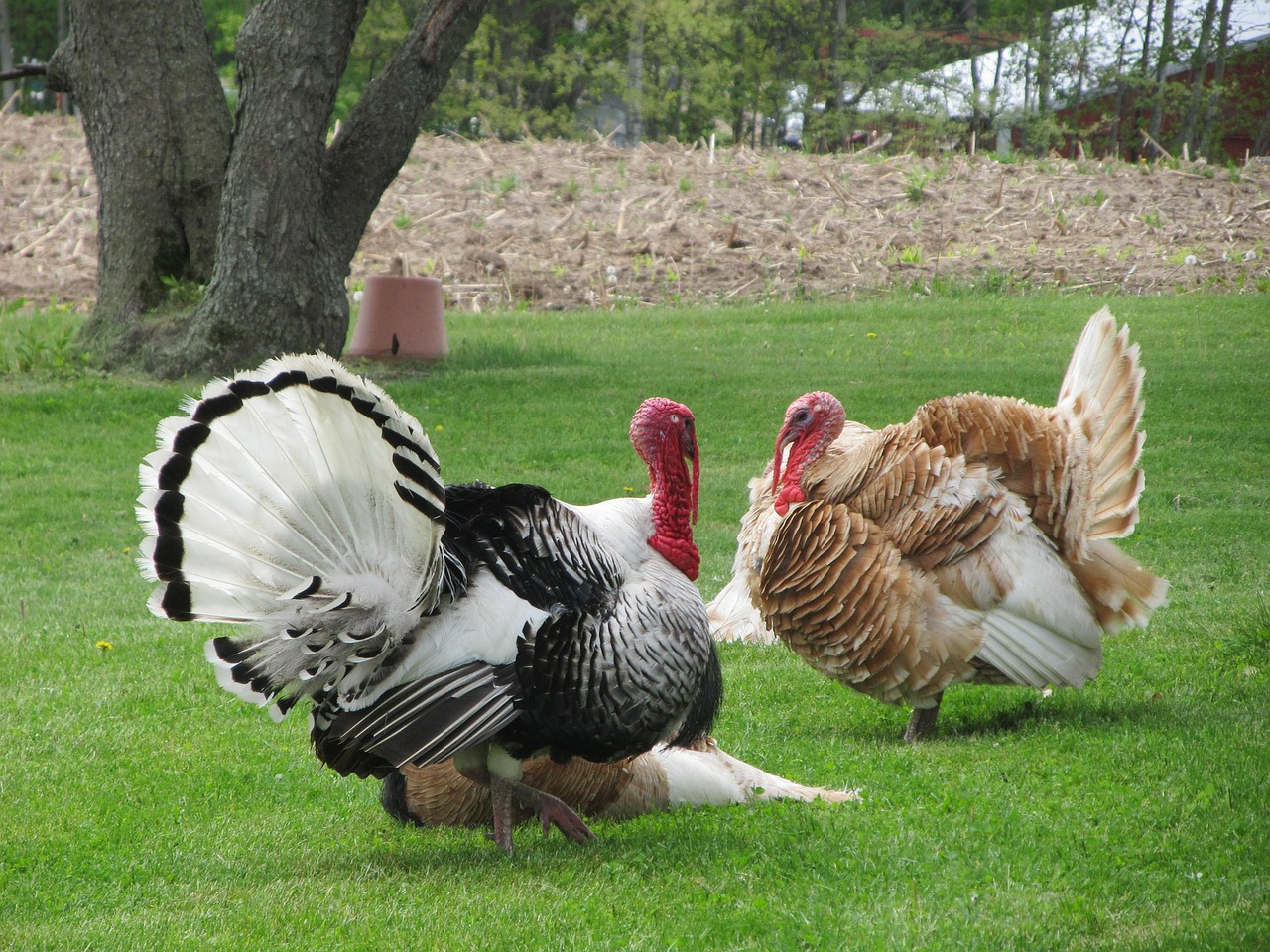
With chickens, you get eggs every day or every other day depending on the breed. Turkeys, on the other hand, will lay approximately two eggs per week if they’re a good layer. You can realistically expect an average of 100 eggs per year from a turkey.
This makes raising turkeys for eggs less cost-effective unless you are planning on making money off the turkeys in some form.
The Nutritional Value and Uses of Turkey Eggs
You may be wondering, if turkey eggs are such a delicacy is there more nutritional value to them?
In short, no, there isn’t.
It’s quite the opposite. Turkey eggs are about one and half times larger than a traditional chicken egg. They contain double the cholesterol, calories, and fat because of the size difference.
Turkey eggs have similar taste to duck eggs, they are known for having a richer taste.
As duck eggs are great for baking, turkey eggs are too. Many people also enjoy them poached, hard-boiled, or even as part of an omelet.
Use caution when using turkey eggs. Many people have egg allergies, and this can vary from species to species.
Some people aren’t allergic to chicken eggs but become violently ill when indulging in duck eggs. It could be the same scenario when using turkey eggs.
Until you know your sensitivities or those who eat your cooking’s allergies, introduce turkey eggs gingerly into a diet.
Still Want to Raise Turkeys for Eggs? Here’s What You Need to Know
Turkeys are like chickens in many ways. They require food, clean water, and a suitable shelter for their survival on your homestead.
When raising turkey poults, it’s important to meet their specific needs. They’ll need to be kept in a brooder under a heat lamp until they’ve developed their feathers to help maintain their body temperature.
Once the birds have reached young adulthood, they’re ready to be launched into the real world.
1. You Need a Turkey Tractor
Start the launching process by keeping the turkeys in a sturdy, movable tractor. You can use an indoor coop, but a tractor is often the better option because they can eat the fresh grass beneath them, and it helps shave some cost off the feed bill. They’re big eaters.
It also helps ensure they have clean surroundings. Be sure you don’t overcrowd the tractor. A full-grown turkey needs at least 6 square feet of space to live comfortably.
When building your turkey tractor be sure you use adequate fencing. Many animals love to eat turkey. Therefore, it’s vital to use sturdy fencing to keep predators out.
Make sure your tractor has plenty of ventilation and roosting space for the turkeys too.
2. Proper Feeding
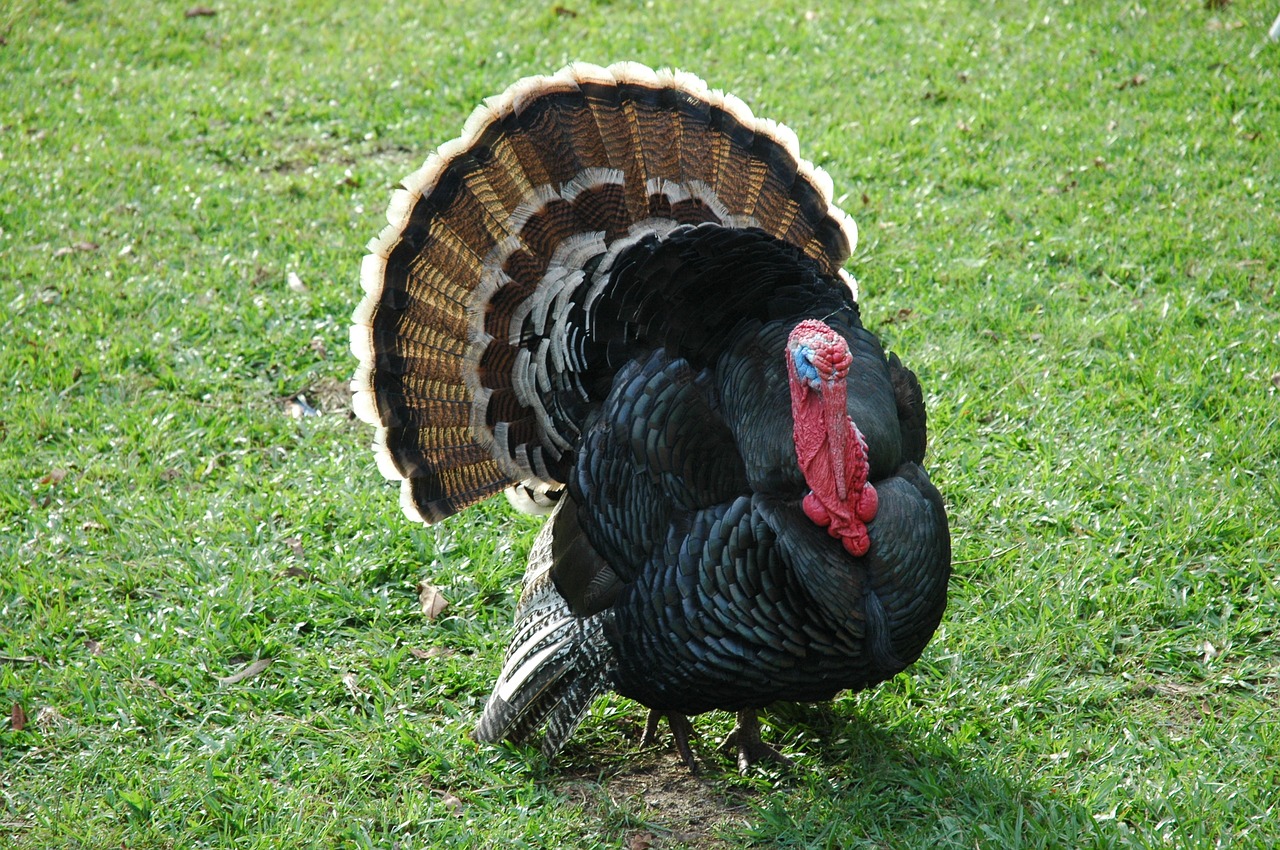
Turkeys are big eaters. When the birds are fully grown, they’ll eat approximately one pound of food per day per bird.
They need plenty of protein in their diet. You can either feed them the same feed as you would chickens, or you can use a wild game feed which has plenty of protein and nutrients in it to sustain healthy birds.
Be sure to check their feeders regularly because big birds will eat significant amounts of food and quickly.
3. Nesting Box
You may find it humorous to consider the idea of a large bottomed turkey making its way into a cozy nesting box to lay its precious bundle of joy.
Yet, this is exactly what most turkeys will do if given the opportunity. If you want to encourage your turkeys to lay in a designated spot, provide them with a nesting box.
You can build your own nesting box or purchase one. It depends upon your budget and personal preferences.
It will make it easier to locate the eggs and protect them from any harm between the time they were laid and the time they’re collected.
4. Plenty of Water
The last item on the checklist of what your turkeys will need is fresh water. Everything needs water to survive.
Obviously, turkeys would be no different. If you have a dozen turkeys, they can easily drink two gallon of water in a day.
Be sure to keep a close eye on the amount of water your birds have and make sure they stay hydrated and aren’t stressed due to lack of water.
It’s our hope this information will give you the knowledge you need to make an informed decision on whether turkeys would be a positive addition to your homestead or not.




